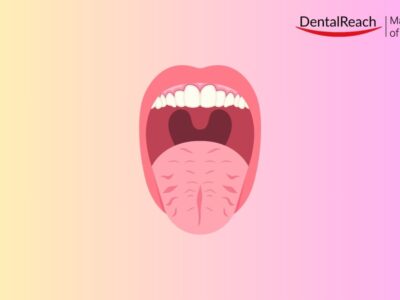Dental radiology certification is a valuable credential that can help dental assistants to expand their knowledge, skills, and career opportunities in the field of dental radiology. This certification shows that a dental assistant has the knowledge and skills necessary to take and interpret dental X-rays safely and effectively. In this article, we will discuss everything you need to know about dental radiology certification for dental assistants.

What is Dental Radiology Certification?
Dental radiology certification is a credential that verifies a dental assistant's proficiency in taking and interpreting dental X-rays. This certification is required in some states, and it can also be helpful for dental assistants who want to advance their careers. With this certification, dental assistants can demonstrate their expertise in dental radiology procedures and techniques.
Dental radiology certification is a credential that shows that a dental assistant or hygienist has the knowledge and skills to take and interpret dental X-rays safely and effectively.
A certified dental radiographer is qualified to perform a variety of dental X-ray procedures, including:
- Periapical X-rays: These X-rays show the roots and crowns of the teeth.
- Bitewing X-rays: These X-rays show the biting surfaces of the teeth.
- Panoramic X-rays: These X-rays show the entire mouth, including the teeth, bones, and sinuses.
- Occlusal X-rays: These X-rays show the chewing surfaces of the teeth.
Dental radiology certification programs typically cover the following topics:
- X-ray physics Radiation safety
- Dental radiographic anatomy
- Dental radiographic procedures
- Image interpretation
Dental radiology certification programs can be completed online or in person. The length of the program will vary, but most programs take between 12 and 24 months to complete.
The cost of dental radiology certification programs will vary depending on the program and the institution offering the program. However, most programs cost between $2,000 and $5,000.
Topics Covered in Dental Radiology Certification Programs
Dental radiology certification programs typically cover a variety of topics related to dental X-rays and radiation safety. Here are some of the common topics covered in these programs:
X-ray physics:
Understanding the principles of radiation, including the units of measurement and how radiation interacts with matter.
Radiation safety:
Learning how to minimize radiation exposure to patients, staff, and the general public. This includes proper use of lead aprons, thyroid collars, and other protective measures.
Dental radiographic anatomy:
Studying the structures of the teeth, jaw, and surrounding tissues as they appear on X-rays.
Intraoral and extraoral radiographic procedures:
Learning how to take different types of X-rays, including bitewings, periapicals, panoramic, and occlusal views.
Interpretation of dental X-rays:
Understanding how to analyze and interpret images to identify potential problems such as caries, periodontal disease, and other oral conditions.
How to Become Certified in Dental Radiology
To become certified in dental radiology, you must complete a program that is accredited by the American Dental Association (ADA). There are many different programs available, both online and in-person. The length of the program can vary, but most programs take between 12 and 24 months to complete.
Once you have completed an accredited program, you will be eligible to take the ADA's certification exam. This exam consists of 100 multiple-choice questions covering topics related to dental radiology. To pass the exam, you must score at least 75%.
- Register for a board-approved radiation safety course
- Complete 32 hours of training to learn how to take X-rays and understand them
- Undergo a written exam for the didactic piece and a practical exam for the lab and clinical part
- Physically practice performing dental X-rays on manikins
- Obtain an X-ray certification certificate that will remain valid indefinitely
- Learn everything you need to know about X-ray safety, setting up, taking, processing, and mounting X-rays for patients, radiation safety procedures of manikins and human subjects, proper techniques to handle digital and traditional X-rays, and dental definitions and terms.
Benefits of Dental Radiology Certification for Dental Assistants
Obtaining dental radiology certification can offer many benefits for dental assistants. Here are some of the advantages of getting certified:
Increased job opportunities:
Many employers prefer to hire dental assistants with certification in dental radiology.
Higher salary:
Certified dental assistants typically earn higher salaries than non-certified assistants.
Improved patient care:
Dental radiology certification can help you provide your patients with better care. You will be able to take and interpret X-rays more accurately, which can lead to earlier diagnosis and treatment of dental problems.
Professional development:
Obtaining certification shows that you are committed to advancing your skills and knowledge in the field of dental radiology.
Conclusion
Dental radiology certification is a valuable credential for dental assistants who want to expand their knowledge and skills in the field of dental radiology.
Completing an accredited program and passing the ADA's certification exam can improve your career prospects and earning potential. It also allows you to provide better care to your patients by taking and interpreting X-rays safely and effectively.
If you are interested in pursuing dental radiology certification, I encourage you to start researching accredited programs and take the first step towards becoming certified.




















Comments